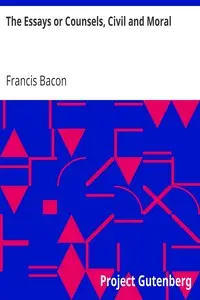Autobiography, written by John Stuart Mill, is a memoir detailing the author's life, from his childhood to his later years. The book is organized in chapters, each covering a particular period of Mill's life. Mill's father, James Mill, played a significant role in his upbringing and education, and the book discusses his father's influence on his life and ideas. The work also touches on the influence of other notable thinkers, including Jeremy Bentham and Auguste Comte, and their impact on Mill's intellectual development. Throughout the memoir, Mill reflects on his experiences, including his time in India and his writing career, providing a comprehensive account of his life. Mill's education was unconventional, with his father teaching him at home and setting a high standard for his academic achievements. His father's goal was to make Mill a renowned thinker, and he was trained in a rigorous and intensive manner. Mill's early years were marked by a focus on classical languages, history, and literature, with less emphasis on scientific and mathematical subjects. His education was not without its difficulties, and Mill recounts the laborious and often frustrating experience of learning. Despite the challenges, he persevered and developed a strong foundation in the subjects he studied. As Mill grew older, he became increasingly interested in the ideas of the ancients, particularly the Greeks and Romans. He also developed a strong appreciation for literature and poetry, and his love for these subjects remained with him throughout his life. The work also explores Mill's mental crisis and how he overcame it, as well as his relationships and friendships. Mill's relationships with notable thinkers and politicians of the time are also discussed, providing insight into the intellectual and political landscape of the time. In his professional life, Mill worked for the India House, where he rose through the ranks and eventually became an influential voice on Indian affairs. He was a prolific writer, producing works on logic, economics, and politics, and his writings had a significant impact on the development of liberal thought. Mill's reflections on his life and times are characterized by their candor and intellectual honesty, making the work a valuable resource for understanding the intellectual and cultural currents of his time.

Autobiography
By John Stuart Mill
John Stuart Mill's Autobiography gives a glimpse into his life, detailing his education, intellectual development, and professional career as a writer and politician, shaped by influential thinkers and personal relationships, which had a profound impact on his ideas and writings.
Summary
About the AuthorJohn Stuart Mill was an English philosopher, political economist, politician and civil servant. One of the most influential thinkers in the history of liberalism, he contributed widely to social theory, political theory, and political economy. Dubbed "the most influential English-speaking philosopher of the nineteenth century" by the Stanford Encyclopedia of Philosophy, he conceived of liberty as justifying the freedom of the individual in opposition to unlimited state and social control.
John Stuart Mill was an English philosopher, political economist, politician and civil servant. One of the most influential thinkers in the history of liberalism, he contributed widely to social theory, political theory, and political economy. Dubbed "the most influential English-speaking philosopher of the nineteenth century" by the Stanford Encyclopedia of Philosophy, he conceived of liberty as justifying the freedom of the individual in opposition to unlimited state and social control.



















